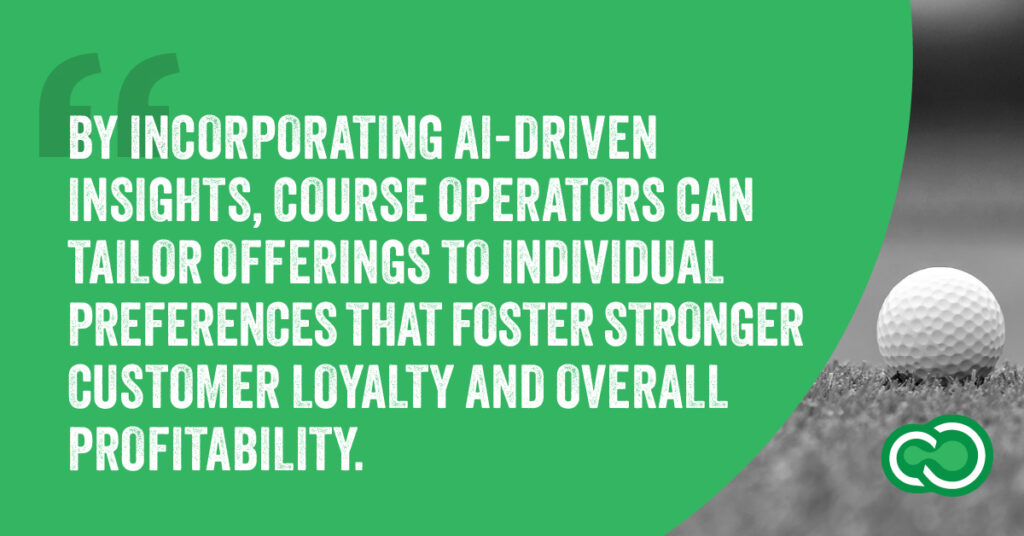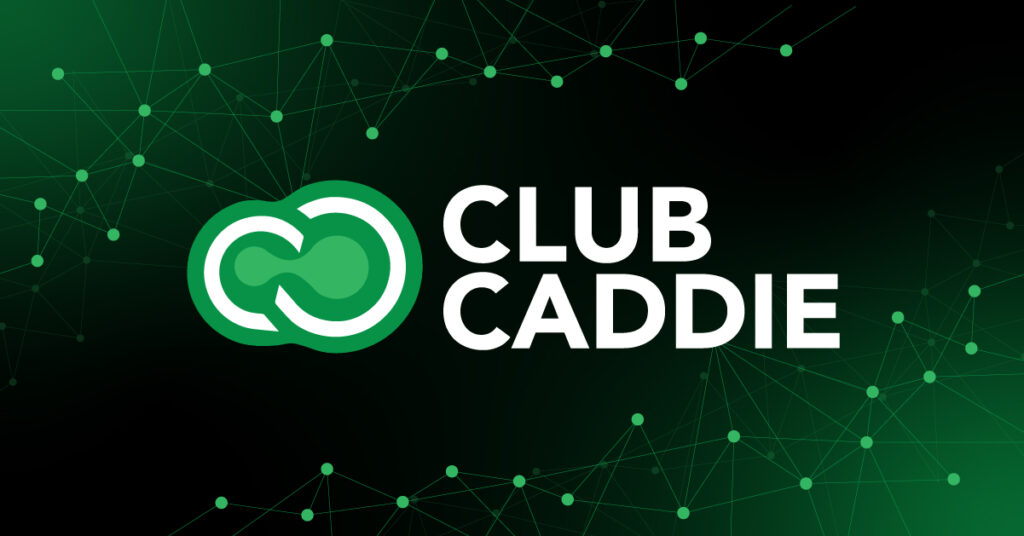For many, the emergence of AI was rapid and unpredictable. However, now that we’ve had some time to adjust, golf course operators everywhere are beginning to warm up to the idea that AI tools have the potential to enhance the experience at their property for golfers, and possibly, make things a little easier on staff.
At Club Caddie, we’re golf operators by trade, so we look at this issue through the lens of how AI-driven tools can make day-to-day operations easier, why being ahead of the game is important, how we’re already using AI in day-to-day life and exactly what the technology is doing not only for golf facility management — but for the game of golf as a whole.
Finding a Balance
Adapting to AI is crucial in a world where technological advancements are rapidly transforming the landscape of the workforce and everyday life. Creativity, empathy and critical thinking — qualities that AI cannot replicate — remain the most valuable skills in all hospitality related fields and should be nurtured among your customer-facing employees. While golf is firmly rooted in hospitality and relies largely on personal touch, that doesn’t mean AI is inapplicable to the industry. Where AI may be eliminating the need for human involvement in other industries, our sights are set on a different goal in golf course management. With the use of AI, we can improve customer experience and efficiency by eliminating the need for tedious tasks and research.
How We’re Already Using AI
Artificial Intelligence has seamlessly woven itself into the fabric of our daily lives and already impacts how we interact with the world around us. Once thought to be science fiction, we now understand just how real and applicable the technology truly is. From using smart assistants like Alexa, Siri and Google Assistant when booking tee times from home to AI-driven navigation systems that adapt to traffic in real-time on the way to the course, golfers are likely unaware of just how often they interact with AI on a daily basis.
AI is used in e-commerce platforms to offer personalized recommendations, and in music services to suggest songs based on listening habits. The ability to read and predict consumer habits could prove to be hugely beneficial in the world of business — and that rings as true for the golf business as any other.
While AI hasn’t made a massive impact on golf course management just yet, the future may be closer than you think. We know that golfers are already using AI when selecting courses or booking tee times, and at times, may not even know they’re doing it. However, sooner than later, AI will begin to play a role on the course’s side of operations in a seamless, efficient and recognizably helpful way.
The Capabilities of AI and Consumer Insights
Club Caddie, the only golf course management system built by and for course operators, is already finding ways to incorporate similar technology. Microsoft’s Co-Pilot, a graph-grounded assistant that enables operators to bring work content and context to AI chat capabilities, will soon be released in Club Caddie and is woven into the function of Club Caddie’s software.
Through this merge in tech, data sets from customer purchase history — including tee time selection, food and beverage orders and pro shop purchases — are analyzed automatically and used to predict future behavior. This enables course operators to analyze what works and make more informed decisions about what discounts, promos, and merchandise to offer to customers, and where they will perform most effectively when shown.
What’s Lies Ahead for Golf Course Operators
To give you a better understanding of what we mean, we’ve laid out a few theoreticals for you to think on:
John is an eight handicap. His rounds are typically around four hours long, he is not known to exclusively play on weekends, he almost always orders a hot dog at the turn and is very prone to leaving poor reviews when pace of play is slow.
Using this information, an operator will be able to cater their offerings to his ideal golf experience. Perhaps marketing materials sent to John push for Wednesday morning tee times when pace of play is quick, and in that same email, he is reminded that happy hour on weekdays includes discounts on foods. With this set of targeted information appealing very specifically to his habits, John is much more likely to book a tee time at your course.
David is a leisurely golfer with a high handicap who enjoys taking his time on the course, often playing rounds that extend beyond 7PM. He prefers playing at twilight on weekdays when he can relax and socialize with his playing partners. He values courses with scenic views and peaceful surroundings, and he enjoys playing in golf outings and charity events that promote a relaxed atmosphere.
Marketing materials sent to David could highlight late-afternoon weekday tee times when the course tends to be quieter — allowing for a more relaxed pace of play. Additionally, materials could emphasize the course’s beautiful scenery and tranquil setting, featuring beautiful photography and highlighting specific holes or vistas that David might appreciate. David could also receive invitations to participate in leisurely golf outings and charity events hosted by the club, aligning with his preference for a laid-back golfing experience.
All of this information would typically take hours of conversation and research to acquire for every player you host, but in the near future, it can be done with zero involvement required from you or your team.
It’s that simple.
Conclusion
The integration of AI into golf course management represents not just a technological advancement, but an essential change for operators looking to enhance both efficiency and customer satisfaction. As we navigate the ever-changing landscape of golf, AI offers opportunities to streamline operations, personalize customer experiences and optimize decision-making processes.

By incorporating AI-driven insights, course operators can tailor offerings to individual preferences — such as John’s bias for quick-paced rounds and David’s preference for leisurely weekend play — that foster stronger customer loyalty and overall profitability. Embracing AI is not about replacing human touch, but empowering it with data-driven precision and foresight. As the future unfolds, those who embrace AI will find themselves not only ahead of the curve, but poised to redefine excellence in golf course management for years to come.

